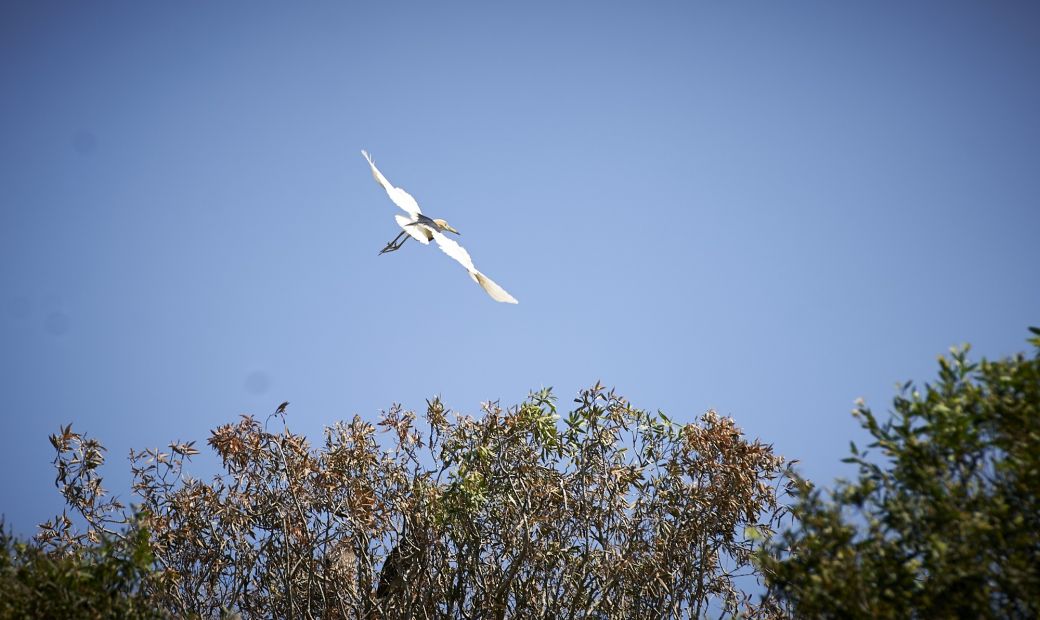Please fill in some of the data provided below to receive the latest Toyota-related news and information in your email.


It is hard to imagine what life in 2050 will be like from the environmental point of view. Will the quality of air, water and climate be better, or on the contrary, worse? That will depend on what’s to be done today.
For nearly five decades, countries across the globe regularly celebrate the World Environment Day. Since 1974, when the United Nations initiated the annual celebration, the world environment has remained challenging.
The environmental conditions will certainly worsen if humankind does not move to protect nature. Various attempts starting from minimizing the use of fossil energy, the depletion of groundwater which makes the earth surface porous, the excessive exploitation of forest areas to production of waste and garbage, must be taken to avert carelessness.
Nowadays the impact of climate change has increasingly materialized. A variety of natural disasters, such as flash flood, landslide, extreme weather and extinction of wildlife, are inseparable parts of the destruction of nature.
But, it’s never too late to make a change. Future life can still be filled with a greener view, quality air and water, and better environment.
Toyota believes that the condition of the earth can be improved in the future by setting a boundary to the future, namely by living in harmony with the surrounding environment.
As a global automotive player, Toyota realizes the company’s pioneership in the campaign to save the environment will bring a significant impact. To realize the sustainability of the earth, it has designed a strategic tactical measure named “Toyota Environmental Challenge 2050”.
Released in 2015, the Toyota Environmental Challenge is a statement of its active participation in the creation of a better global environment in the next 20 years or 30 years. In short, through it, the company will spend greater energy and attention to nature preservation efforts in line with its corporate sustainability.
Six Issues, Six Challenges
The slogan of the Toyota Environmental Challenge 2050, namely Achieving Net Positive Impact, implies that the company will promote initiatives as well as real contribution in nature preservation.
Toyota Environmental Challenge 2050 addresses various environmental problems, such as biodiversity loss because of development, as well as reduces effects of the greenhouse gas emission pertaining to extreme weather. Furthermore, it also underlines that every industrial activity by the company can result in or inch near zero environmental impact.
To do that, Toyota Environmental Challenge 2050 pays attention to six main environmental issues nowadays. They are greenhouse gas emission as the cause of extreme weather, air pollution resulting from burning activities in various sectors of life, and global water crisis driven by overpopulation. Other issues are the depletion of natural resources underground, such as fuel and other minerals, the dispersion of natural ecosystems leading to disasters to living creatures and the threat of biodiversity loss in line with the change of climate or ecosystems. Toyota Environmental Challenge 2050 encourages real actions to address the six issues.
The real actions pertaining to the preservation of nature and environment have colored many Toyota activities across the globe. The presence of the Toyota Environmental Challenge 2050 further drives initiatives that have long existed in the company and its global business network.
In a number of its production centers, Toyota has taken steps to cut the use of water in plants to ensure the waste water is treated before being released into the environment. Other actions are optimizing recycling to fill the need for resources and carrying out forest conservancy as well as preservation of biodiversity.
However, the Toyota Environmental Challenge 2050 does not end with the activities held so far. Therefore, it proposes six challenges that various elements in the company must overcome.
It can be said that the Toyota Environmental Challenge 2050 is an effort by every person in Toyota to create a better world. The six challenges comprise:
Challenge 1: Zero CO2 emission in every new vehicle. The target is to reduce the CO2 emission by 90% in all Toyota vehicles by 2050 from the 2010 level. To achieve this goal, Toyota will distribute 5.5 million electrified vehicles by 2030, while the CO2 emission is estimated to decline to 35% from the 2010 level.
Challenge 2: Zero CO2 emission by way of a vehicle’s life cycle. The target comprises tasks that Toyota must fulfill by 2050 when carbon emission is removed in a vehicle throughout the production of components, manufacturing, and distribution to customers.
Challenge 3: Zero CO2 emission in plants. All Toyota plants worldwide will generate zero CO2 emission in its manufacturing plants by 2050. The target is expected to reach 35% of the 2013 CO2 emission level.
Challenge 4: Minimizing and optimizing water usage. A number of Toyota plants worldwide have made achievements by saving the use of water by optimizing the wastewater as well as rainwater. Another step is to manage waste and water optimally so that they will not pollute water in rivers and destroy the environment. Going forward, the eco-friendly measures will be applied in the entire Toyota supply chain.
Challenge 5: Creating a recycling-based global society. In Japan, Toyota has applied recycling technology for car maintenance as well as absorbed unused cars. Until the next decade, Toyota has targeted that all the company’s entire global network own facilities and systems to collect and recycle batteries. Apart from that, it will set up 30 facilities to process and recycle waste from expired cars.
Challenge 6: Establishing a future society in harmony with nature. Toyota has always tried to share environmentally-friendly life values to the people, communities and its partners globally.
So far, Toyota has various contributions to the nature preservation. It has a lot of cooperation with various parties in forest and biodiversity conservancy.
Media/Journalist Contact : [Memuat email...]
Non Media / Non Journalist Contact : [Memuat email...]

© 2024 Toyota Motor Manufacturing Indonesia. All Rights Reserved.
